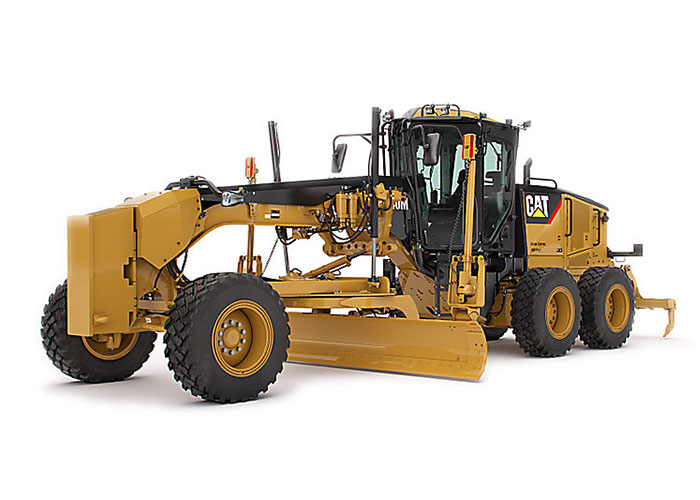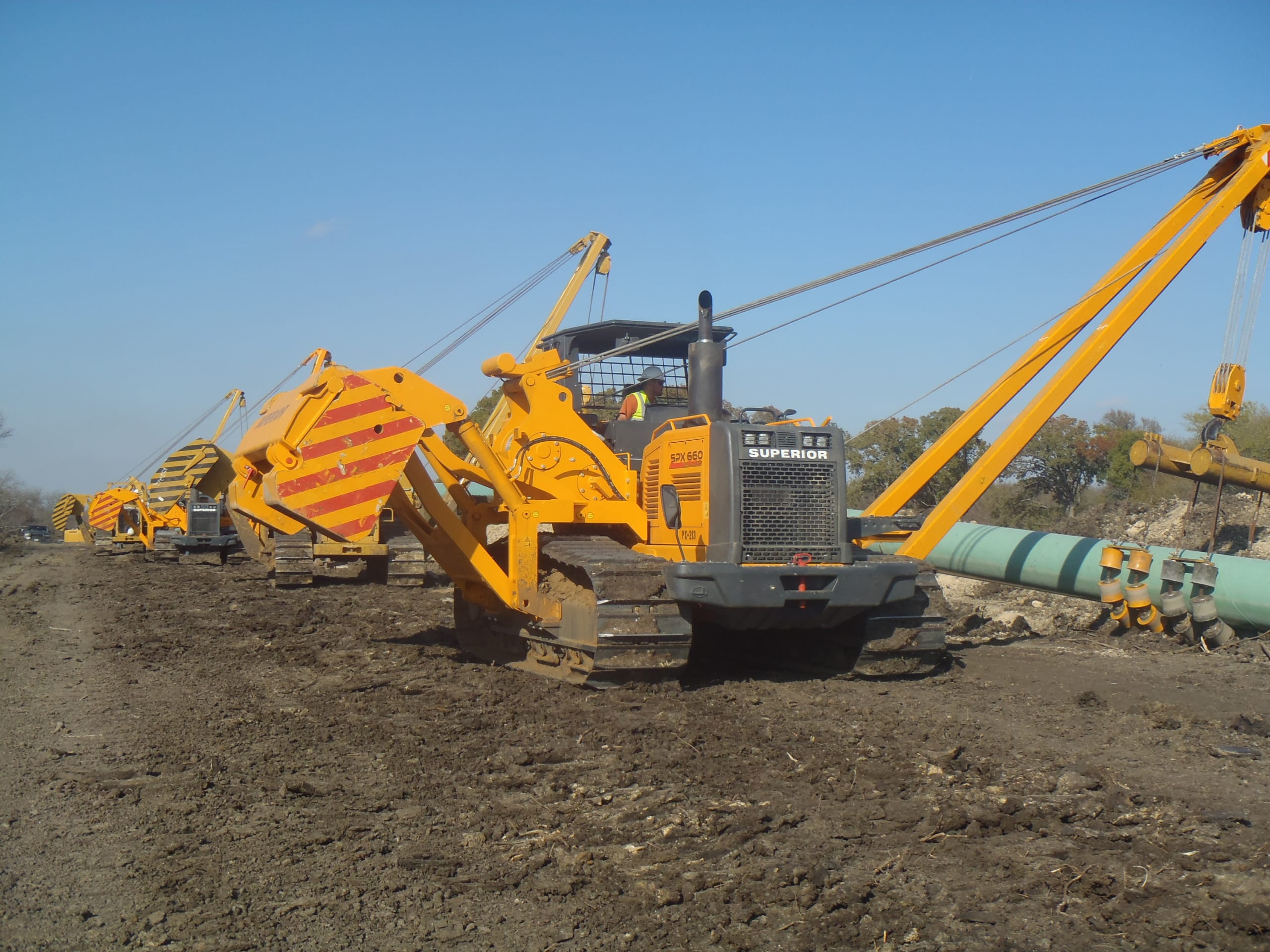Superior Oilfield Rentals oilfield: technology innovations shaping pipeline work
Wiki Article
A Comprehensive Guide to the Different Sorts Of Oil Field Equipment and Pipeline Equipment Available
The oil and gas industry depends heavily on specialized tools for effective extraction and transport. Different kinds of equipment, from piercing rigs to storage space containers, play important roles in this intricate process. Each item of tools offers distinct functions that add to total operational success. Understanding these parts is crucial for anybody involved in the sector. As the industry evolves, so also do the technologies that sustain it. What innovations are on the perspective?
Drilling Rigs: The Foundation of Oil Exploration
Drilling rigs work as the vital machinery in the domain of oil exploration, making it possible for business to access hydrocarbon gets hidden deep below the Earth's surface. These rigs are available in different types, consisting of land rigs, offshore rigs, and mobile systems, each made to run in particular settings. Furnished with innovative innovation, drilling rigs can permeate geological developments with accuracy, guaranteeing effective resource extraction. The architectural stability and operational capacities of these rigs are critical, as they must withstand severe conditions and substantial pressures. Moreover, the choice of an exploration gear influences the general task cost and timeline, making it a crucial factor to consider for oil business seeking to maximize their exploration efforts and maximize productivity in their operations.Pumps: Vital for Fluid Motion
In the oil removal procedure, the function of pumps is substantial, assisting in the movement of liquids throughout various stages of manufacturing. Pumps are vital for moving crude oil, water, and other fluids from below ground tanks to the surface area and afterwards through pipes to refineries. They come in numerous kinds, consisting of centrifugal, favorable variation, and completely submersible pumps, each serving particular purposes based on the fluid features and functional demands. Centrifugal pumps are generally utilized for their efficiency in high-flow applications, while favorable displacement pumps master handling viscous liquids. The option of pump impacts total effectiveness, functional safety and security, and upkeep expenses. Proper option and upkeep of pumps are vital for optimizing production and reducing downtime in oil area operations.Shutoffs: Controlling Flow and Pressure

Shutoffs play a vital function in handling the flow and stress of liquids within oil fields and pipelines. Different kinds of shutoffs serve distinctive applications, each created to meet details features basic for efficient operation - Superior Rentals Contact. Recognizing the qualities and uses of these shutoffs is important for optimizing system efficiency and safety and security
Sorts of Valves
Crucial components in oil field operations, valves play a vital function in managing the flow and pressure of fluids within pipes and devices. Various kinds of valves are used to meet the diverse requirements of oil and gas production. Typical kinds include gate valves, which give a straight-line circulation and marginal stress decrease; world shutoffs, recognized for their strangling capacities; and ball valves, recognized for their fast on/off control. In addition, check shutoffs prevent backflow, while butterfly valves provide a light-weight option for controling circulation. Each valve kind is designed with certain materials and arrangements to withstand the rough conditions typically found in oil fields, guaranteeing dependability and performance in procedures. Comprehending these kinds is critical for efficient system management.Valve Applications and Functions
While numerous kinds of valves serve distinct purposes, their main applications focus on controlling circulation and stress within oil and gas systems. Valves such as gate, world, and ball shutoffs control liquid movement, making certain peak efficiency and security. Gate shutoffs are generally used for on/off control, supplying minimal flow resistance. Globe shutoffs, on the various other hand, deal specific flow policy, making them appropriate for throttling applications. Round valves are favored for their quick operation and limited sealing capacities. In addition, stress safety valve are essential for preventing system overpressure, guarding tools honesty. Overall, the proper option and application of valves improve functional effectiveness, ensuring the reputable transport of oil and gas through pipes and handling facilities.Compressors: Enhancing Gas Transportation
Compressors play a vital duty in the effective transport of natural gas, ensuring that it moves smoothly via pipes over lengthy distances. These devices raise the pressure of natural gas, allowing it to conquer rubbing and altitude adjustments within the pipeline system. Additionally, compressors promote the balancing of supply and demand, suiting fluctuations in consumption and manufacturing prices. Different types of compressors are employed in the market, including centrifugal, reciprocating, and rotating screw compressors, each offering unique benefits based on the functional needs. Normal upkeep of these compressors is necessary to make best use of efficiency and lessen downtime, inevitably adding to a dependable gas transport network. Their vital feature highlights the significance of compressors in the total oil and gas framework.Storage Tanks: Safe and Effective Liquid Administration
Efficient transportation of natural gas counts on different support group, among which is the appropriate monitoring of storage tanks. These storage tanks play a necessary role in securely including liquids, making certain that functional efficiency is kept while lessening ecological threats. Built from durable products, they are created to hold up against high stress and destructive aspects. Appropriately sized and strategically located, storage space tanks assist more info in the smooth circulation of gas and other liquids, stopping bottlenecks in supply chains. Regular maintenance and surveillance are vital to identify leakages or architectural issues, advertising security and compliance with regulative standards. Ultimately, the reliable management of tank is important for the general honesty and dependability of the oil and gas sector's liquid handling systems.
Pipeline Systems: Facilities for Transportation
Pipeline systems work as the foundation of the oil and gas industry, promoting the effective transportation of hydrocarbons over substantial distances. These systems contain different components, including pipelines, shutoffs, pumps, and compressors, all carefully created to ensure smooth flow. The materials made use of in pipeline building, typically steel or high-density polyethylene, are picked for durability and resistance to corrosion. Pipeline networks can span across land and water, attaching manufacturing sites to refineries and warehouse. Additionally, progressed modern technology enables real-time monitoring of circulation prices and stress levels, enhancing functional performance. The critical positioning of these pipes reduces environmental influence while optimizing resource access, therefore playing a crucial role in conference power demands worldwide.Safety And Security Equipment: Making Certain Worker and Environmental Defense
The operation of pipeline systems, while important for energy transport, also presents considerable safety and security challenges for employees and the setting. Safety devices plays a substantial duty in reducing these dangers. Individual protective devices (PPE) such as helmets, gloves, and non-slip footwear safeguards workers from physical hazards. Additionally, gas discovery systems keep an eye on for leaks, guaranteeing that dangerous compounds do not pose a danger to personnel or the surrounding community. Emergency situation shutdown systems are critical for quickly halting procedures throughout a situation, avoiding possible disasters. Spill containment materials, including absorbents and obstacles, are essential for minimizing environmental impact. Generally, buying all-inclusive safety tools is critical for maintaining operational honesty and protecting both workers and the setting in the oil and gas sector.
Often Asked Questions
Exactly how Do I Select the Right Oil Field Equipment for My Task?
Picking the ideal oil area tools involves examining task specifications, spending plan constraints, and functional requirements. Think about variables such as equipment dependability, compatibility with existing systems, and the distributor's credibility to guarantee peak efficiency and security.What Are the Maintenance Requirements for Oil Field Equipment?
Maintenance requirements for oil area devices include normal inspections, lubrication, and timely repairs. Operators should likewise adhere to manufacturer guidelines, display efficiency metrics, and warranty compliance with security policies to boost longevity and efficiency.
Exactly How Can I Guarantee Conformity With Environmental Laws?
To ensure compliance with environmental laws, firms must conduct regular audits, apply finest practices, spend in training, maintain proper documents, and remain updated on legislation (Superior Rentals reviews). Partnership with ecological firms can likewise boost adherence to lawsWhat Is the Typical Lifespan of Pipeline Equipment?
The ordinary lifespan of pipeline tools normally varies from 20 to 50 years, relying on elements such as material high quality, environmental conditions, and maintenance methods. Normal assessments can greatly affect longevity and functional effectiveness.Just how Do I Securely Carry Oil Field Equipment to Remote Locations?
Transporting oil field equipment to remote places calls for cautious planning, including course evaluation, safeguarding authorizations, utilizing proper cars, and making certain safety and security protocols are adhered to. Correct training and communication amongst teams are important for successful transport.Report this wiki page